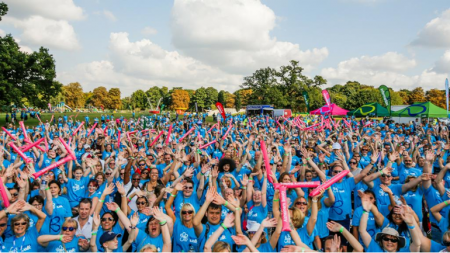
Transforming the city
Wednesday 3 May 2017
CITIES in developing countries can become more community friendly and healthy, says an expert in urban neighbourhoods.
Bhakti More, Associate Professor, School of Design and Architecture, Manipal University, Dubai is now completing her doctorate at the University of Salford through a distance learning course and is currently studying ways of making urban spaces friendlier and less stressful.
Contemporary cities are the primary drivers of social, cultural and economic changes. But with limited chances for social interaction and with the absence of healthy community living, urban life is becoming more and more stressful. Rapid urbanisation is leading to social exclusion causing loneliness and mental health related issues.
The real challenge for the urban planners and architects are to plan and design socially cohesive neighbourhoods.
Bhakti said: “The major drawback of the emerging city environment is that urban life is becoming impersonal. We need to take a step back and look at how can we improve urban living. As the concept of ‘smart city’ is gaining momentum, the design of urban spaces has to be 'more intelligent' regarding liveliness and to mitigate the adverse fallouts of increasing urbanisation.
“My areas of research include urban planning and design and how thoughtful planning and design can contribute to building socially cohesive community neighbourhoods in a multicultural city of Dubai. I hope that my paradigm on the socially cohesive communities will be useful for the urban planners and architects around the world to plan, design and build sustainable communities.”
Bhakti’s area of research examines the relationship between physical layouts and built forms emanating from urban planning and design of community neighbourhood and social cohesiveness amongst the inhabitants. “Thoughtful planning and design will encourage and sustain social inclusion, interactions and integration which will eventually build strong social ties, a sense of community and belonging among residents in the neighbourhoods,” contends Bhakti. The concept of communities is emerging with examples such as The Greens in Dubai which has a strong sense of community. The physical planning of The Greens gives opportunities for the multicultural residents to have social interactions through various common indoor and outdoor spaces.
On the question of Bhakti’s decision to pursue her doctoral degree from the University of Salford, she explains: “I wanted to enrich my career prospect in academics and develop my core area of research in the areas of urban social sustainability. I wanted to pursue my doctoral research along with my current commitments at the Manipal University Dubai. And the option of overseas doctoral degree offered by the University of Salford worked best in my case.”
“During my studies, I received incredible support from all university staff and most importantly from my supervisors. I will certainly recommend a doctoral degree from this university to anyone who is keen to advance in their academic and professional life,” says Bhakti.
“Bhakti has done great work so far and is committed to her studies. Her work could make a real difference to the planning of neighbourhoods to develop sustainable communities,” says David Baldry, senior lecturer in the School of the Built Environment and Bhakti’s supervisor.
Bhakti More is originally from Mumbai in India and an expat living in Dubai.
Find out more
Sam Wood
0161 295 5361





